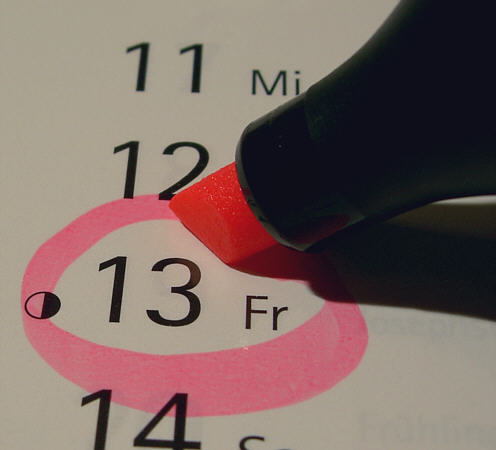
Friday the 13th, the most unlucky day in Western superstition is here. It occurs when the 13th day of the month in the Gregorian calendar falls on a Friday.
The single, most dreaded date in the entire calendar is thought to have been created by some smart minds by the amalgamation of the age-old tradition that considers both number 13 and Friday to be 'unlucky.'
The date has also inspired some horror movies, while the day has become a stark reminder of bad luck, strange happenings and morbid references such as murder or the likes, into today's age. 'Friday the 13th' has been on the top trend on Twitter in the US throughout Friday, triggering a spate of interesting comments on the popular day.
But what more do we know about this day and all other facts related to it?
Here are some of the most interesting ones including some historical facts and insights into its origin:
- Folkorists have found no written evidence for a "Friday the 13th" superstition although the earliest known documented reference in English occurs in Henry Sutherland Enwards' 1869 biography of Gioachino Rossini, who is thought to have died on Friday the 13th.
- In numerology, the number twelve is considered to be a divine number, with an interesting organizational structure, especially with references to things such as twelve months, twelve hours of the clock, the twelve deities of Olympus, twelve Apostles of Jesus and so on – that seem to depict chronological completeness.
- The number '13', however, is seen as an irregular and odd number that goes against 'completeness.' There is also a superstition that having thirteen people seated at a table results in the death of one of them.
- Another superstition says that if one cuts one's hair on Friday the 13th, someone in his family will die.
- Yet another strange belief claims that a child born on this day will be unlucky for the entire life.
- In the 14th century's The Canterbury Tales, Friday has been considered to be an unlucky day. Christians also commemorate the crucifixion of Jesus on a Friday before Easter – considered to be a sad day.
- The scientific name for the phobia of Friday the 13th is 'Friggatriskaidekophobia'. 'Frigga' is the wife of the Norse God Odin after whom Friday is named, while 'triskaidekophobia' is the fear of the number 13.
- In 2014, Friday the 13th occurs only once, but next year the date will come thrice – in February, March and November.
- This year, the day has coincided with a full moon—considered to be an out-of-the-way omen and thought to be one of the worst days in superstition.
- The fear of number 13 is so pronounced in some parts of the world, that some buildings don't have the 13th floor – and will directly proceed to the 14th from 12th. Some constructors even refuse to make a building with more than 12 floors.
- In Spanish-speaking countries, however, it is not Friday that 13th that is thought to be the most unlucky day. Instead, they consider 'Tuesday the 13th' as a day of back luck.
- Legendary rapper Tupac was killed on Friday the 13th in Las Vegas (although there is no proof the date had anything to do with it)















